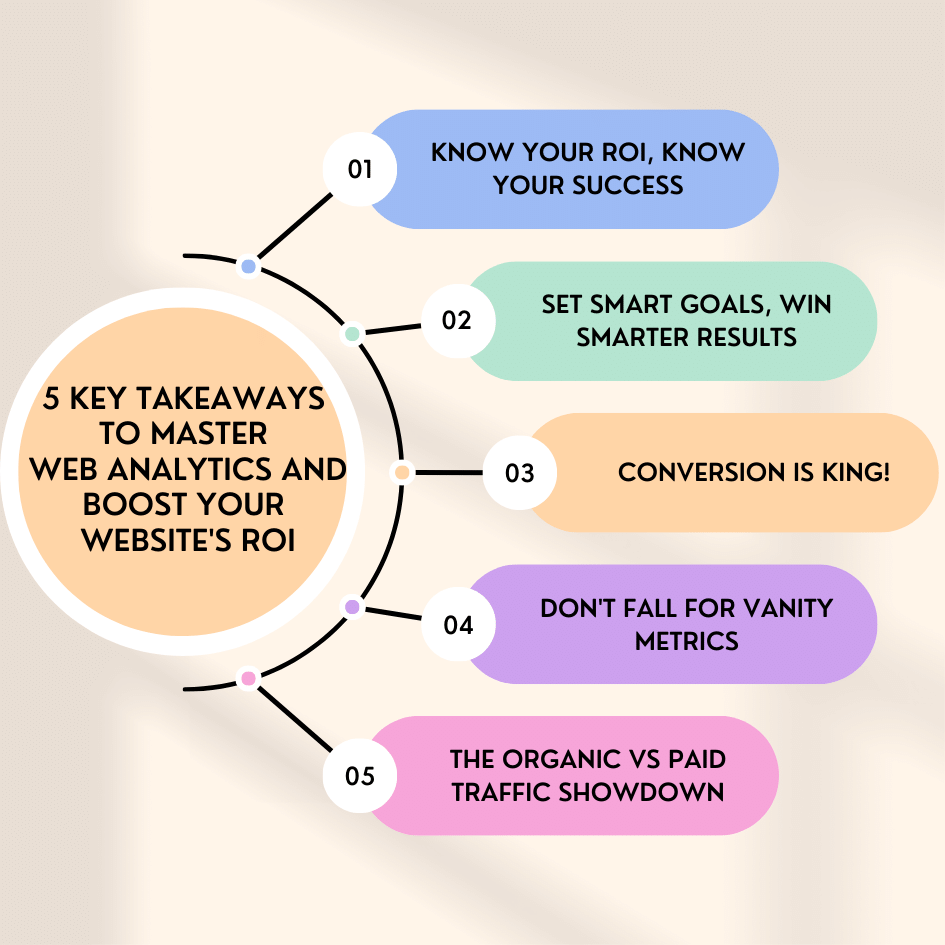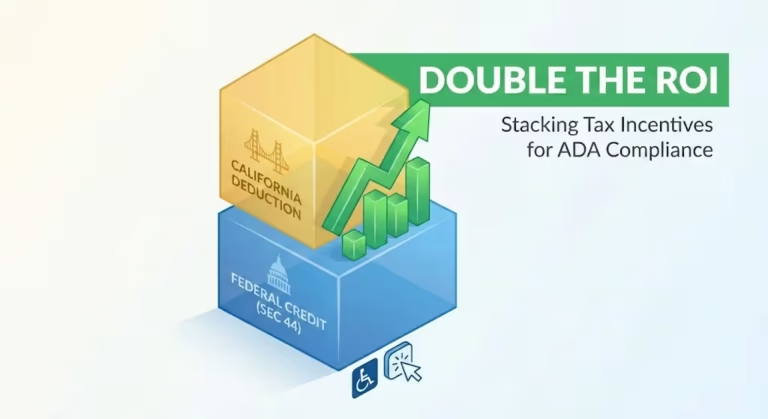Introduction
So, you’ve got yourself a spiffy business website. Cool beans! But here’s the million-dollar question: Is it paying off? Welcome to the universe of Web Analytics and ROI. By the end of this read, you’ll be a whiz at measuring the ROI of your business website.
Introduction to ROI: Why Every Business Website Needs It
Hold up—let’s break down ROI (Return on Investment). Imagine you’ve planted a seed; ROI is the juicy fruit you harvest. It’s vital for tracking how much bang you get for your buck. If you’re not watching your ROI, you’re essentially flying blind.
Why Ignoring ROI Can Be a Costly Mistake
If ROI were a person, ignoring it would be like ignoring your doctor’s advice—risky and regrettable. You could be tossing money into a black hole without even knowing it.
Setting Clear Objectives: The Foundation for Measuring ROI
Ah, objectives—the starting line of your ROI marathon. Make them SMART (Specific, Measurable, Achievable, Relevant, and Time-bound). Tie these objectives with your overarching business goals. Voilà! You’ve set your compass.
 The Goals That Matter and How to Align Them
The Goals That Matter and How to Align Them
- Increase traffic by 20% in Q4
- Achieve a 5% conversion rate by year-end
By aligning goals like these, you set a framework for actionable Web Analytics.
Tracking Conversions: The Cornerstone of Website ROI
Here comes the fun part: tracking. Tools like Google Analytics can be your best pals in monitoring user actions. So, how many clicked that “Buy Now” button?
Implementing Tracking Tools Effectively
- Use Google Tag Manager
- Set up goal funnels
Yes, you got it! Implementing these tools properly gives you the conversion data you need.
The Cost Side of the Equation: Understanding Your Website Expenditures
Penny wise, pound foolish? Let’s avoid that. List down every dime you’ve spent on website development, maintenance, content, and so on. These are your costs.
The Full Breakdown of Costs
- Development: $5000
- Hosting: $50/month
- Content: $1000/month
Metrics That Matter: Identifying KPIs Aligned with ROI
Heads up! Not all metrics are created equal. We’re talking about vanity metrics vs. real-deal metrics like click-through rates and user engagement. Aim for KPIs that tie back to your ROI.
Vanity Metrics vs Real-Deal Metrics ⚖
- Vanity: Page views
- Real-Deal: Conversion rate
User Behavior and ROI: How User Experience Affects Your Bottom Line
No one likes a clunky website. Smooth user experience is directly proportional to better ROI. Think of it as serving a five-star meal; better ingredients result in a better dish and, thus, happier customers.
How UX Affects ROI
- Faster loading time increases user engagement
- Mobile optimization boosts conversions
The Role of Content Marketing in ROI: Is Your Content Paying Off?
Content isn’t just king; it’s the whole darn kingdom when it comes to ROI. Are your blogs generating leads? Is your video content lowering bounce rates?
Measuring Content ROI
- Track engagement
- Monitor lead generation sources
SEO and ROI: How Organic Search Impacts Your Returns
Ah, SEO—the unsung hero of Web Analytics. SEO doesn’t just improve rankings; it also turbocharges your ROI. Keep those keywords crisp and content engaging.
Paid vs Organic Traffic: Evaluating the ROI of Each Channel
Let’s spill some tea: Paid traffic gets you quick wins, but organic traffic builds a lasting empire. Both have their pros and cons; the trick lies in finding the right balance.
Evaluating Traffic ROI
- Paid Traffic: High cost, immediate results
- Organic Traffic: Low cost, long-term benefits
Beyond the Numbers: Qualitative Factors Affecting ROI
Last but not least, it’s not all about numbers. Brand reputation and customer satisfaction are intangible assets that play a pivotal role in ROI.
Conclusion
Alright, pals, class dismissed! Armed with Web Analytics and a solid grasp of ROI, you’re now ready to turn your website into a money-making machine.
Ready to rock the world of Web Analytics and ROI? Click here to turn your business website from a wallflower into the life of the revenue party!


